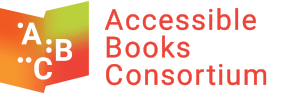This online course is designed for partner organizations that serve people who are print disabled in developing or least developed countries and offers training in the latest techniques to produce books in accessible formats such as Braille, audio, e-text and large print, thus benefiting people with print disabilities around the world.
Within the context of the COVID-19 pandemic and ongoing travel restrictions, training has shifted to online platforms rather than in-person. WIPO partnered with accessibility expert, the DAISY Consortium, to develop the ABC Online Course in Accessible Book Production. The English language version of the course was completed first and participants started to register at the end of last year. The course modules are currently being translated into French and Spanish and over 95 participants from partner organizations will have taken the course by the first quarter of 2021.
Many of the trainees are themselves blind, have low vision or other disabilities. The course platform is inclusively designed, with navigable lesson content, accessible quizzes, described images and captioned videos. The course teaches participants how to make accessible books using production software that is also entirely accessible.
WIPO Director General Daren Tang: Amid the global pandemic, WIPO and its partners are committed to working hard to allow the over 250 million people who suffer from visual deficiencies to continue having access to educational and other books in accessible formats. Our newly launched ABC Online Course helps training to continue in these times where traditional in-person training has been disrupted. This will help ensure that people who are blind and visually impaired can benefit from education, share their knowledge with others and participate effectively in today’s information society.
The ABC model for capacity building aims to equip organizations in developing and least developed countries with the ability to produce educational materials in national languages to be used by primary, secondary and university students who are print disabled. Participants from over 250 organizations, including NGOs, departments of education and publishers, previously received training onsite in the latest accessible book production techniques.
Partner organizations are thus empowered to independently produce titles that are part of the national curriculum, thereby reducing barriers and inequalities faced by visually impaired students. ABC’s contributions in the field further encourage the production of works relevant to local communities and cultivates the safeguard of their cultural heritage.
ABC provides funding to selected partner organizations to produce educational books in accessible formats through its capacity building projects so that the skills and techniques acquired are therefore immediately put into practice by the trainees. From 2015 – 2020, over 13,700 educational books were produced by 25 partner organizations that received training and funding from ABC. An additional 5,300 accessible educational titles will be produced by the end of this year from projects established in 17 countries.
Monica Halil Lövblad, Head, ABC: Once the accessible educational books are produced by our partners, they are made available not only locally but also worldwide through the ABC Global Book Service, which has hit a new milestone with over 600,000 accessible titles in 80 languages available for cross-border exchange under the provisions of the Marrakesh Treaty.
The course will enhance the efficiency and reach of ABC’s capacity building activities in future by:
- enabling ABC to scale its efforts so as to train numerous partner organizations in a year, including those in remote locations;
- making the learning material available to trainees for a longer duration, thus allowing them an extended period of time to strengthen their skills.
ABC looks forward to offering the online course to many more organizations worldwide, including publishers and departments of education.
IPA is a board member of the Accessible Books Consortium.

